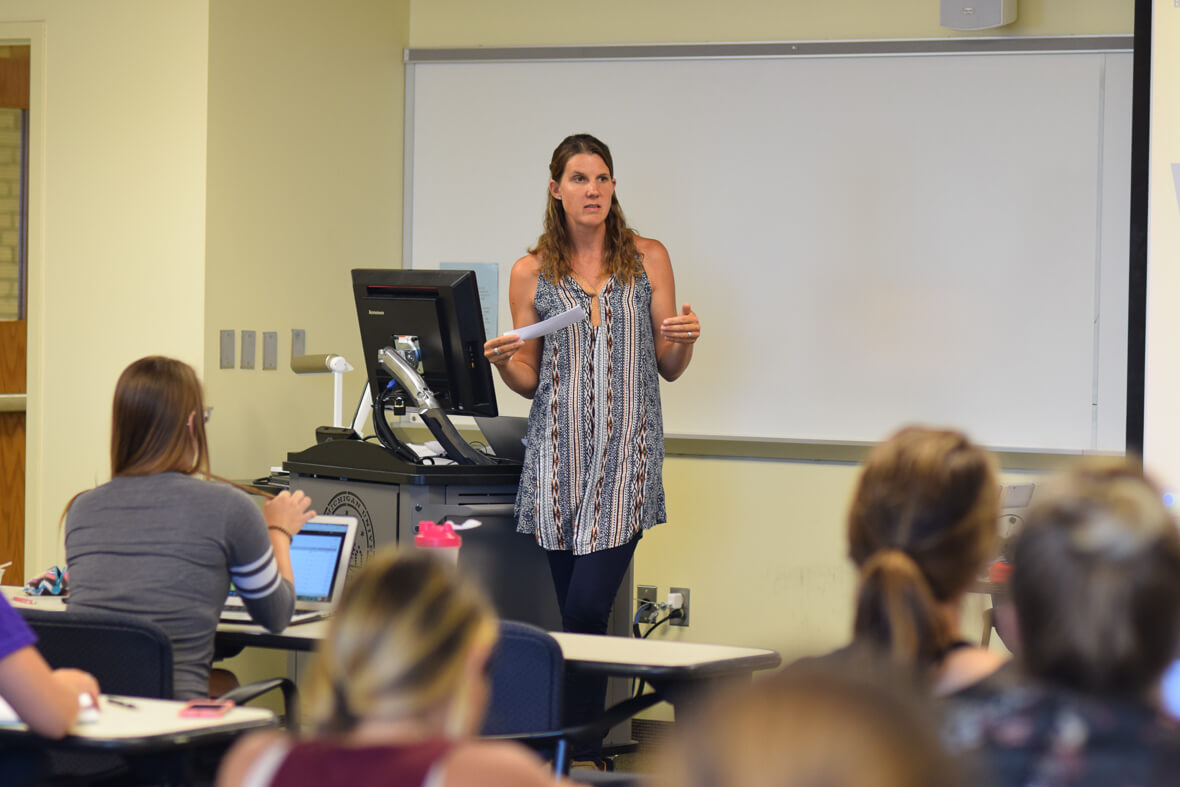Sometimes, going to conference talks is hit-or-miss. I’m certainly no authority, but I have sat in on a few during professional development opportunities at Atomic Object. From my experiences so far, here are things I’ve noticed that might improve audience retention during your talk.
Realistically describe the topic on the schedule.
There’s an appeal to having an attention-getter as your title or description for a talk, but sometimes this works to your disadvantage. Although it doesn’t happen often, vagueness in how you describe a topic can lead to disappointment at best and people zoning out/walking out to go to another talk at its worst. That doesn’t mean you need to avoid this entirely! I like when the title is something fun. I just wish that the description, in this case, provides more detail – something close to an agenda/table of contents so that people know what they’re signing up for.
Use your strengths to your advantage.
Several public-speaking lessons I’ve attended during academia have pushed for a relatively narrow perception of how someone should behave and sound. The problem is that not everyone is comfortable being energetic or charismatic up on stage; it isn’t natural. Everyone speaks with a slightly different tone and cadence – that’s what makes people so interesting!
My voice tends toward a relatively monotone effect. If I try to change that, it will come across as more awkward than if I didn’t. It can also have a sort of “uncanny valley” effect, too. Instead, I use my monotone style to create a sense of humor that’s unique to me when I present. The audience can tell if you’re uncomfortable easily, so I think everyone should just be themselves.
Stop using presentation slides as a crutch.
This is more of an opinion about style. Visual aids like presentations and diagrams add to the experience, but they shouldn’t be required. Unless you have some really complex architecture or process, the talk alone should be enough for everyone to understand the topic. Ask yourself: “Can someone understand what I’m saying without this presentation behind me?”
A lot of us technical folks can get into the details of something too much; this sacrifices clarity and conciseness. As a result, sometimes I look at the presentation first before ever acknowledging what the speaker is saying, because that’s the easier thing to understand.
Sidebar: Too often, I notice people reading entire sentences off of presentation slides. If the slides are provided beforehand (which they should be every time), then as an audience member, there is little value to sitting in on a talk I can read about later. It can also be quite boring to listen to something I can read faster.

